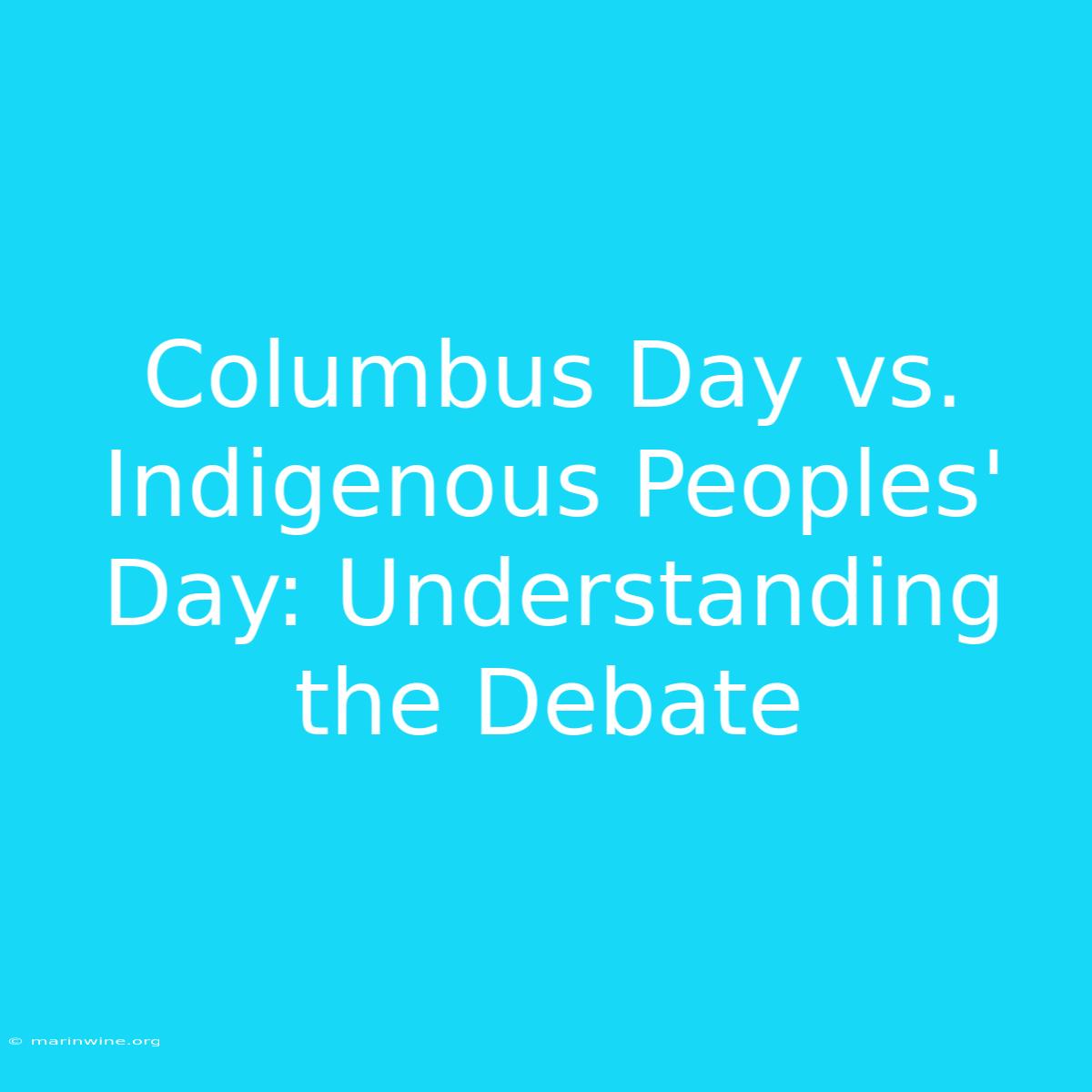Columbus Day vs. Indigenous Peoples' Day: Understanding the Debate
Editor's Note: This article explores the historical context and ongoing debate surrounding Columbus Day and Indigenous Peoples' Day.
Why This Matters: The celebration of Christopher Columbus' arrival in the Americas has been a source of controversy for decades. While some see it as a celebration of European exploration and the beginnings of the United States, others argue that it ignores the devastating impact of colonization on Indigenous populations. This debate highlights the complexities of historical narratives and the need for a more inclusive understanding of American history.
A Deeper Dive: The narrative of Columbus's "discovery" has been challenged by historians and Indigenous communities for many years. The reality is far more nuanced and complex.
- Columbus's Arrival: While Columbus is credited with "discovering" the Americas, Indigenous people had been living on the continent for thousands of years before his arrival.
- The Impact of Colonization: Columbus's arrival marked the beginning of European colonization, which brought about widespread disease, displacement, and violence against Indigenous peoples.
- The Erasure of Indigenous History: The traditional celebration of Columbus Day has been criticized for perpetuating the myth of a "peaceful" encounter and for erasing the voices and experiences of Indigenous people.
Key Takeaways:
| Traditional View | Alternative View |
|---|---|
| Columbus discovered the Americas. | Indigenous peoples inhabited the Americas for millennia. |
| Columbus's voyage brought progress and prosperity. | European colonization led to genocide, displacement, and forced assimilation of Indigenous peoples. |
| Columbus Day celebrates exploration and the founding of the United States. | Indigenous Peoples' Day acknowledges the history, resilience, and ongoing struggles of Indigenous peoples. |
Moving Forward: The debate around Columbus Day and Indigenous Peoples' Day reflects a broader conversation about the representation of diverse histories and cultures in our society.
- Honoring Indigenous History: Celebrating Indigenous Peoples' Day offers an opportunity to recognize the rich history, culture, and contributions of Indigenous peoples in the United States.
- Promoting Inclusivity: By shifting the focus from a celebration of colonization to an acknowledgement of the history and ongoing struggles of Indigenous peoples, we can move towards a more inclusive and accurate understanding of American history.
FAQ:
- Why are some people opposed to celebrating Columbus Day? Many people believe that celebrating Columbus Day perpetuates a romanticized and inaccurate view of his actions, which led to the displacement and genocide of Indigenous peoples.
- Why is Indigenous Peoples' Day important? It provides an opportunity to acknowledge and celebrate the rich history, culture, and resilience of Indigenous peoples in the United States.
- What are some ways to learn more about Indigenous history and culture? You can visit museums dedicated to Indigenous culture, read books written by Indigenous authors, and support Indigenous-owned businesses.
Tips:
- Educate yourself: Learn about the history of Indigenous peoples in your area and the impact of colonization on their communities.
- Support Indigenous organizations: Contribute to Indigenous-led organizations that are working to preserve their culture and address the ongoing challenges they face.
- Engage in respectful dialogue: Engage in conversations about Indigenous history and culture with empathy and a willingness to learn.
Conclusion: The debate surrounding Columbus Day and Indigenous Peoples' Day highlights the need for a more nuanced and accurate understanding of American history. Recognizing the contributions and ongoing struggles of Indigenous peoples is crucial to achieving a more inclusive and just society.
Closing Message: While the debate surrounding Columbus Day and Indigenous Peoples' Day is complex, the conversation itself is a sign of progress. By moving towards a more inclusive understanding of our history, we can honor the past and build a more equitable future for all.

